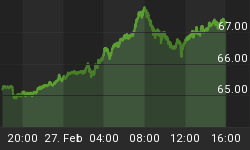The current stock market crash has spurred a vital national debate about the causes and catalysts of the Great Depression. The dominant school of thought believes that the stubborn refusal of then president Hebert Hoover to intervene after the stock market crash of 1929, and his preference for free market solutions, led directly to the ensuing decade-long catastrophe. Through this lens, our leaders assure us that the most recent raft of government measures will prevent another episode of bread lines, Hoovervilles and pencil salesmen. As usual they have it completely wrong. In my view, the Depression was created precisely because Hoover followed the path that our government is now taking.
When the stock market bubble of the Roaring Twenties (which was created as a result of the loose monetary policy of the newly created Federal Reserve) finally popped, Hoover would not allow market forces to correct the imbalances. His policies were aimed at propping up unsound businesses, artificially supporting prices, particularly wages, and providing Federal funds for public works projects. These moves went well beyond the progressive reforms of Teddy Roosevelt, and established Hoover as the most interventionist president ever up to that point. In fact, much of what eventually became the New Deal had its roots in Hoover's policies.
However, at the time, there were those who recommended a different course. Andrew Mellon, the long-serving Secretary of the Treasury whom Hoover had inherited from the prior two Republican Administrations, was labeled by Hoover as a "leave it alone isolationist" who wanted to "liquidate labor, liquidate stocks, liquidate the farmers, and liquidate real estate." Hoover would have none of it. In fact, during his nomination speech for his second term, Hoover bragged "We determined that we would not follow the advice of the bitter liquidationists and see the whole body of debtors of the United States brought to bankruptcy and the savings of our people brought to destruction."
Hoover chose to ignore the sound advice of his Treasury Secretary (in contrast to today where the current Treasury Secretary Henry Paulson is actually leading the charge over the cliff) and instead used every tool at his disposal to "fix" the problem. As a result, rather than allowing a recession to run its course, with healthy and rapid liquidations of the mal-investments built up during the boom, Hoover inadvertently created what became the Great Depression.
When Roosevelt took office he continued the same failed policies only on a grander scale. The magnitude and the idiocy of many New Deal programs, such as the wage and price setting National Recovery Administration (NRA), compounded the problems. So while Mellon's advice would have caused a sharp but relatively brief economic downturn (which occurred after the Panic of 1907, for example), the Depression plodded on for nearly a decade until the country began gearing up for the Second World War.
In an amazing feat of revisionist history, somehow Hoover's interventionist policies have been completely forgotten. It is taken as fundamental that his inaction led to the Depression and Roosevelt's "heroics" got us out. Unfortunately, since we have learned nothing from history, we are about to repeat the very mistakes that lead to the most dire economic circumstance of the last century.
A major difference however, is that the structure of the U.S economy today is far weaker than it was in the fall of 1929. Years of reckless consumer borrowing and spending, and enormous trade and budget deficits have resulted in a hollowed out industrial base and an unmanageable mountain of debt owed to foreign creditors. Instead of the support of a strong currency backed by gold, the public now must deal with a modern Fed free to print as much money as politicians want. So rather than getting the benefits of falling consumer prices (as happened during the Depression), consumers today will contend with much higher consumer prices, even as the economy contracts.
With Barack Obama now waiting in the wings to conjure a newer New Deal, far larger than even FDR could have imagined, and at a time when we cannot even afford the old one, this will not be your grandfather's Depression. It may be much worse.
For a more in depth analysis of our financial problems and the inherent dangers they pose for the U.S. economy and U.S. dollar denominated investments, read my new book "Crash Proof: How to Profit from the Coming Economic Collapse." Click here to order a copy today.
For an updated look at my investment strategy order a copy of my just released book "The Little Book of Bull Moves in Bear Markets." Click here to order your copy now.
More importantly, don't wait for reality to set in. Protect your wealth and preserve your purchasing power before it's too late. Discover the best way to buy gold at www.goldyoucanfold.com. Download my free Special Report, "The Powerful Case for Investing in Foreign Securities" at www.researchreportone.com. Subscribe to my free, on-line investment newsletter, "The Global Investor" at http://www.europac.net/newsletter/newsletter.asp.















